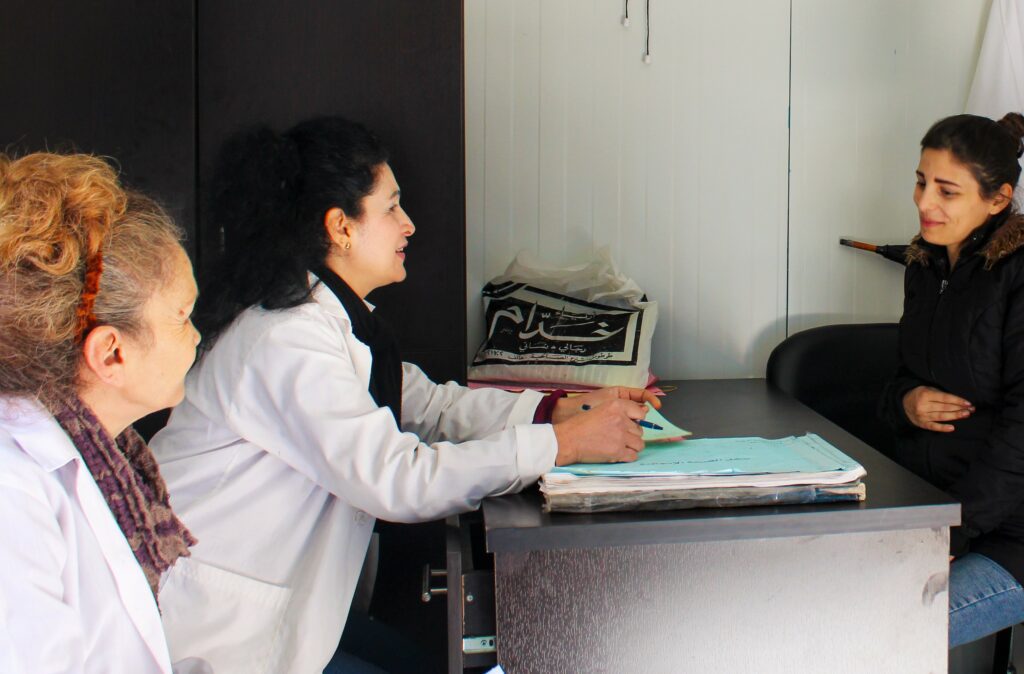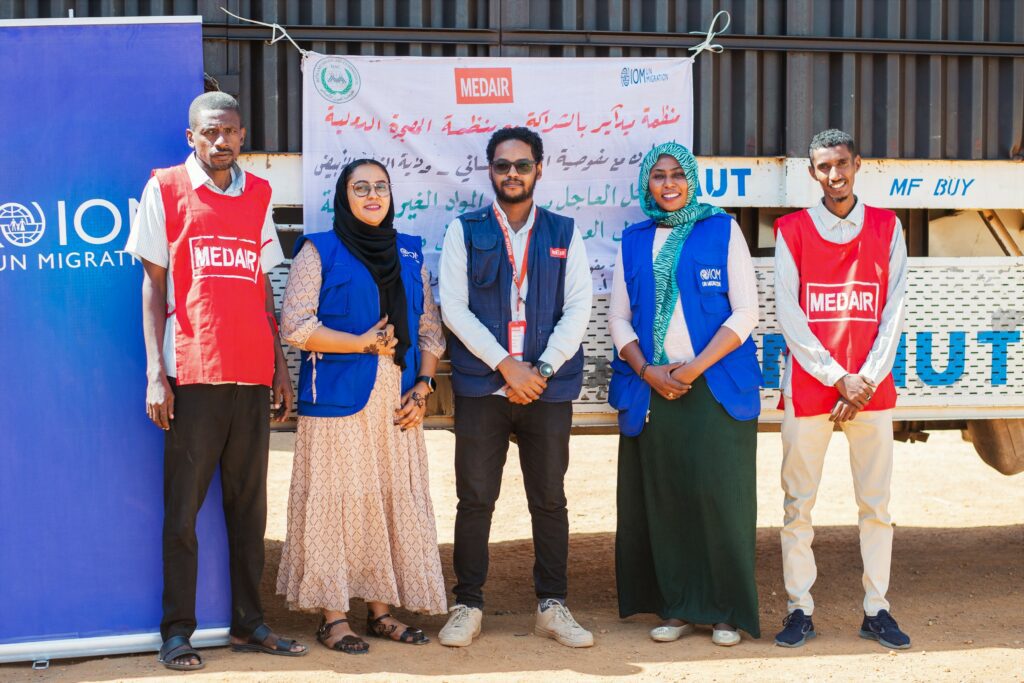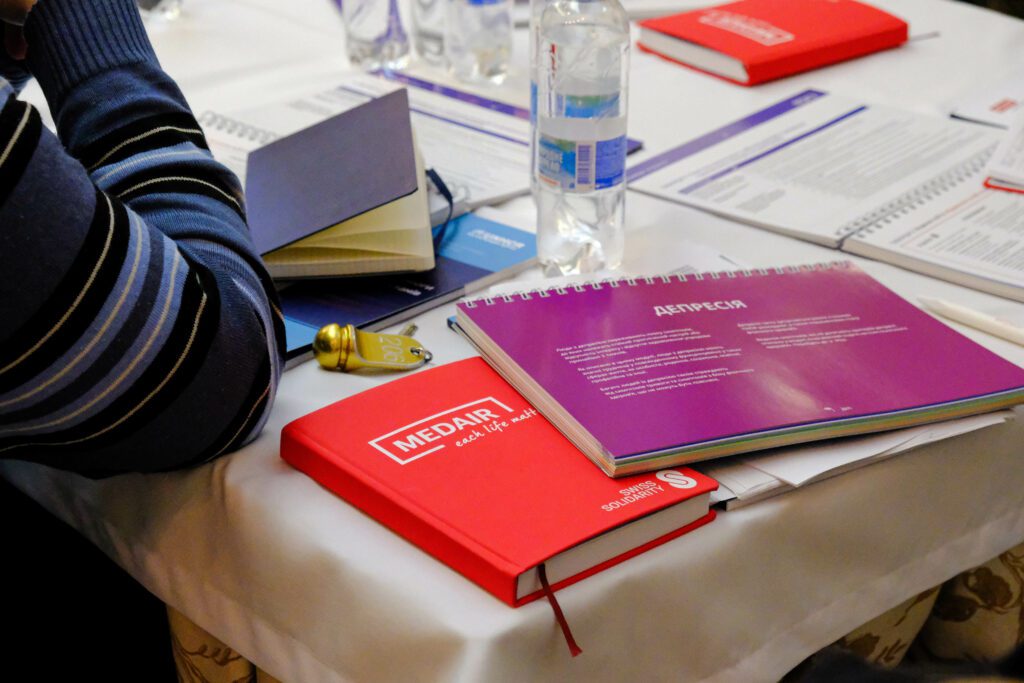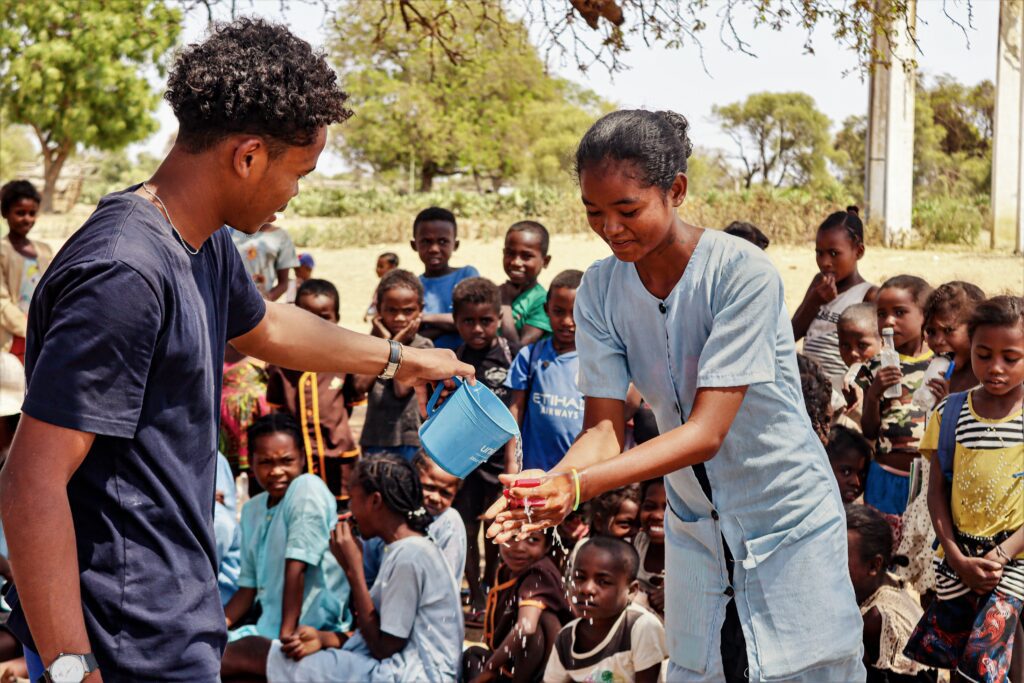“When it rains, this whole area here is flooded,” my local Somali colleague explains to me as we drive through the dust somewhere in Southern Somalia. I watch him confidently looking out of the window of the car, remembering times gone by. Only a handful of people at all know that we are on our way to the IDP settlement this morning in January 2023. In no other country is Medair forced to operate as low profile as in Somalia. “I do not want to imagine what would happen to me and my family if the wrong people knew that I am working for an international NGO,” my colleague, let’s call him Ahmed, tells me. What convinces him to go the extra mile with Medair despite all the threats is that he knows no one else will come to serve the 1,500 households in the IDP settlement today. And no one else will come tomorrow. This neglected community is one of the many in the country affected by the severest drought in more than four decades. An estimated 8.25 million people require humanitarian assistance in Somalia today, and the drought had already displaced more than 1.3 million by the end of 2022. An ongoing prolonged cholera outbreak has sharply increased in 2022, significantly elevating the risks for people in the IDP settlement and underlying the importance of safe water provision.
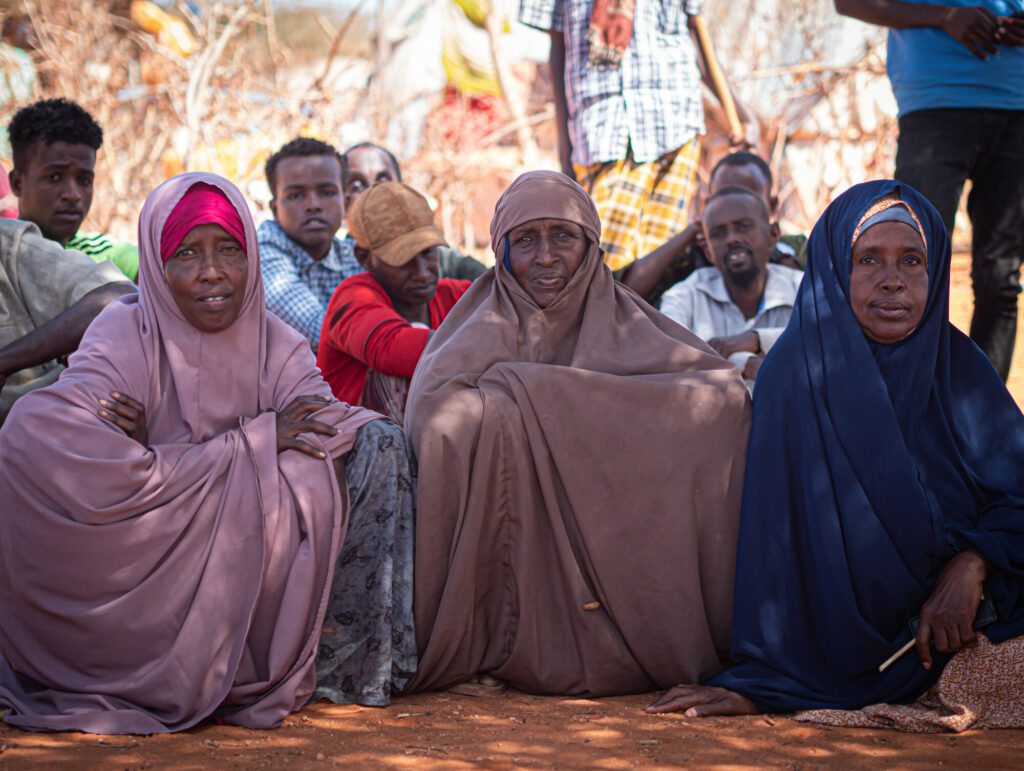
Since 2011 the settlement is a home for displaced people. The severe drought forced more and more farmers and cattle keepers to leave their lives behind and seek aid in this community. ©Medair
“The people you see around me used to have a good life. They were farmers or cattle keepers, very well able to care for themselves and their families. The drought made them dependent on your aid.” These are the words of the settlement’s deputy as he introduces me with mixed feelings. There is no denying that the atmosphere is tense due to my appearance as it reveals the involvement of an international partner in this settlement. Nonetheless, I trust to see joy in the deputy’s eyes as we arrive. “You were the first NGO that came and helped us when no one else came,” he remembers thankfully. “Of course, water is our biggest need here. And you are bringing it to us.”
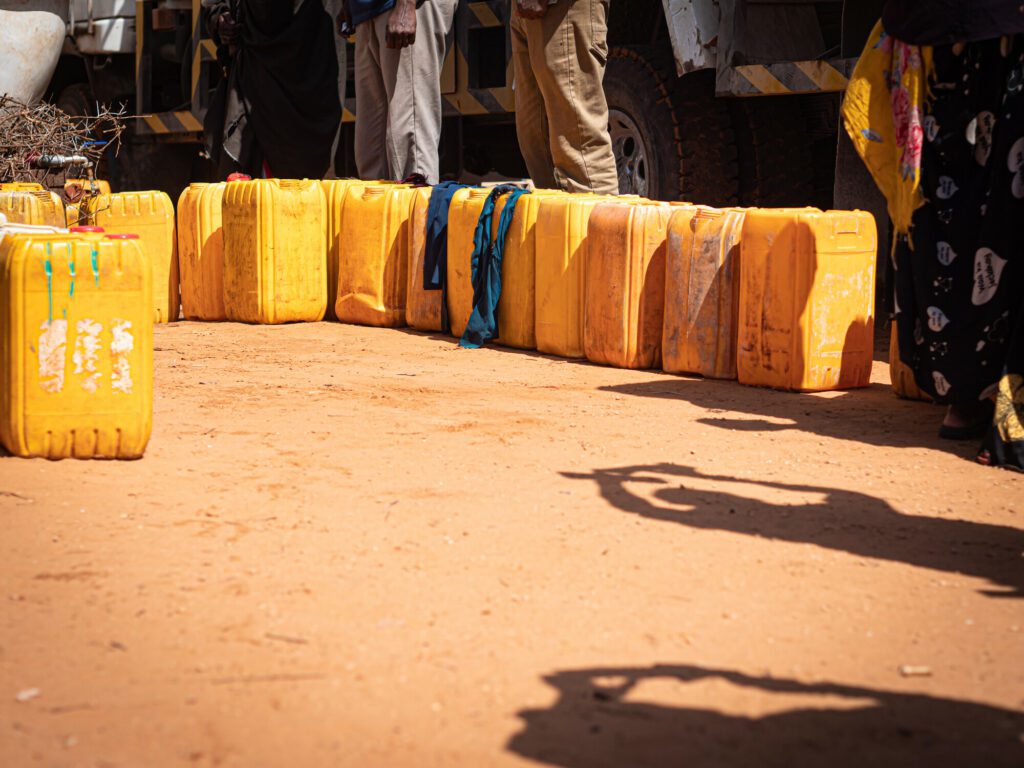
Water canisters lined up by community members waiting for the water distribution to begin in the morning. ©Medair
Since more than 6 months now, the mornings in the settlement start with the same scene: Women leave their shelter early, placing their water canisters patiently in an orderly line as huge water trucks sent by Medair arrive at the site. “Every day we distribute 60,000 litres of clean water to the community,” Ahmed tells me with pride in his eyes. He is a water technician and therefore has a great responsibility for the community. “I check whether the water is really absolutely clean. After all, the people here rely on us.”
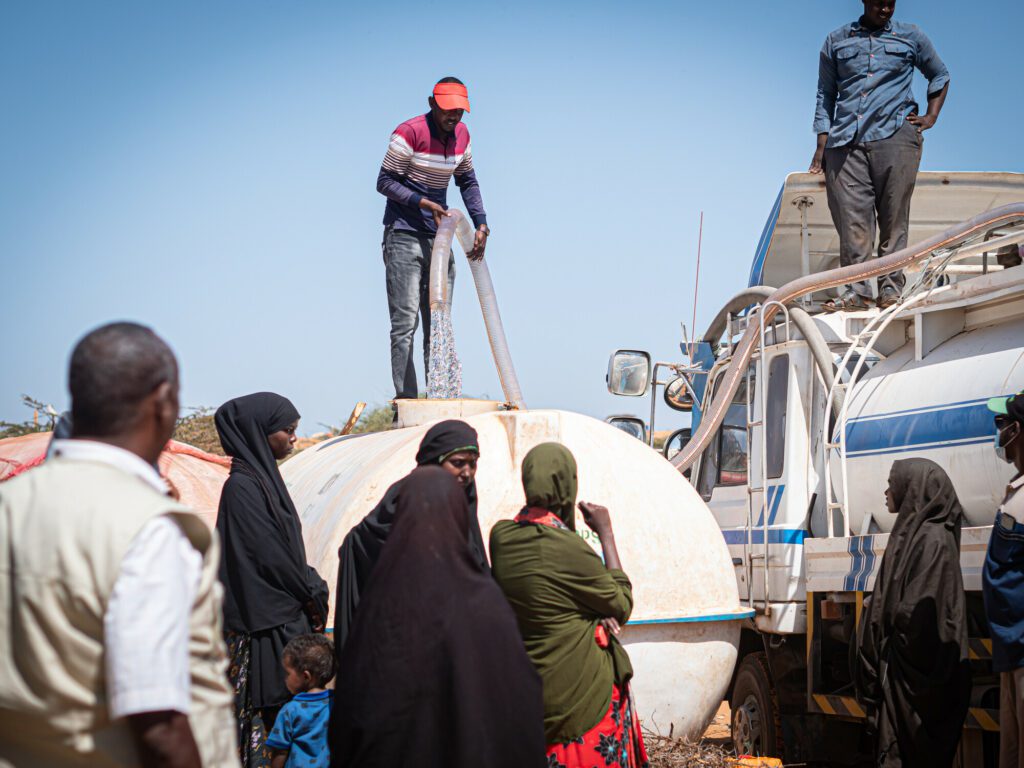
Every morning safe drinking water is filled in a big water tank for the community in this IDP settlement. Enough for them to drink, wash and cook. ©Medair
A large hose is used to fill the water tank from the truck. More and more women join the queue. Only a few of them are willing to be photographed. But I am lucky and even find a female resident who kindly describes her situation in the settlement to me. Jasira, as I will call her for this story, has been living here with her young boy, Hodan, for only a few weeks. She and her family used to have a small farm, grew their own crops and kept livestock. The ongoing drought, however, has destroyed their livelihood.
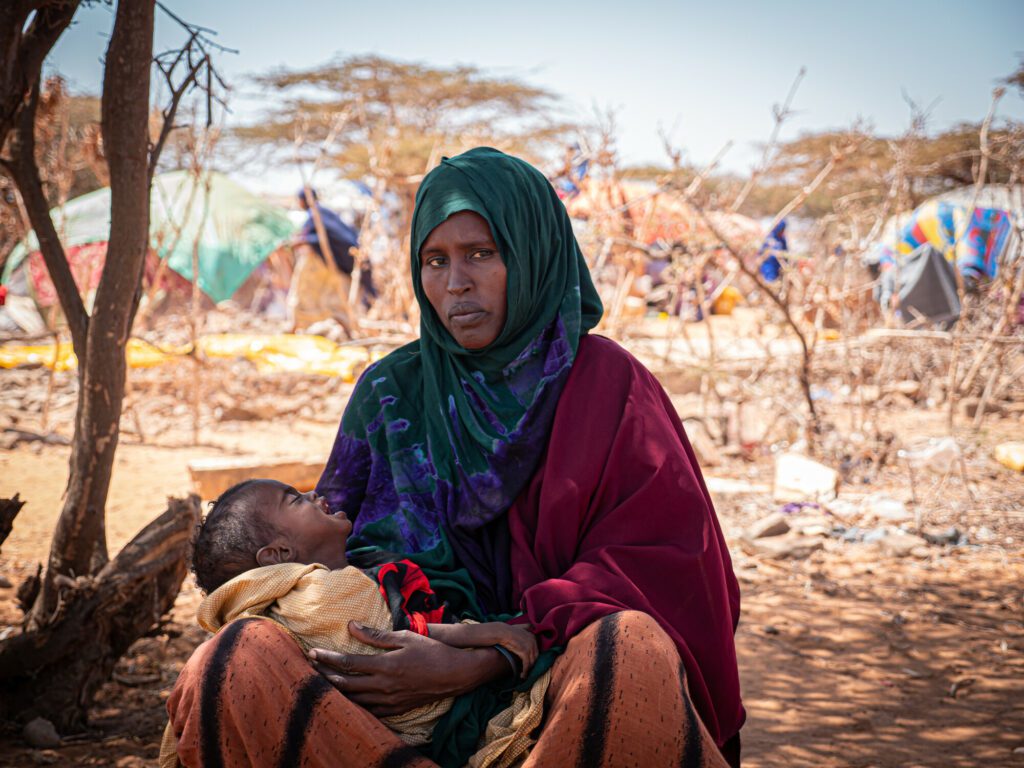
Jasira and her baby boy Hodan recently left their farm due to the drought and found a safe place in this IDP settlement. ©Medair
“It has been too long since there was enough rain for us. My cattle died and cultivating became impossible. I had no other choice but leaving home and finding a place where I can stay with my child. Without water, nobody can survive”, the mother shares. “It was a long and dangerous journey for me and my infant to find your support here in this community. We all are very thankful that you care about us. It seems as nobody else does. Without your support, we all might be dead already. In the morning, we are sure that your trucks arrive and bring fresh and safe water. I come early to the tank to find my place in the queue to fetch it soon, so I am not too long away from our tent. However, our needs in the settlement remain high. You can see my baby is malnourished. I understand you cannot solve all our problems here. The water was my biggest concern, and I am glad that for the moment I do not need to worry about it.”
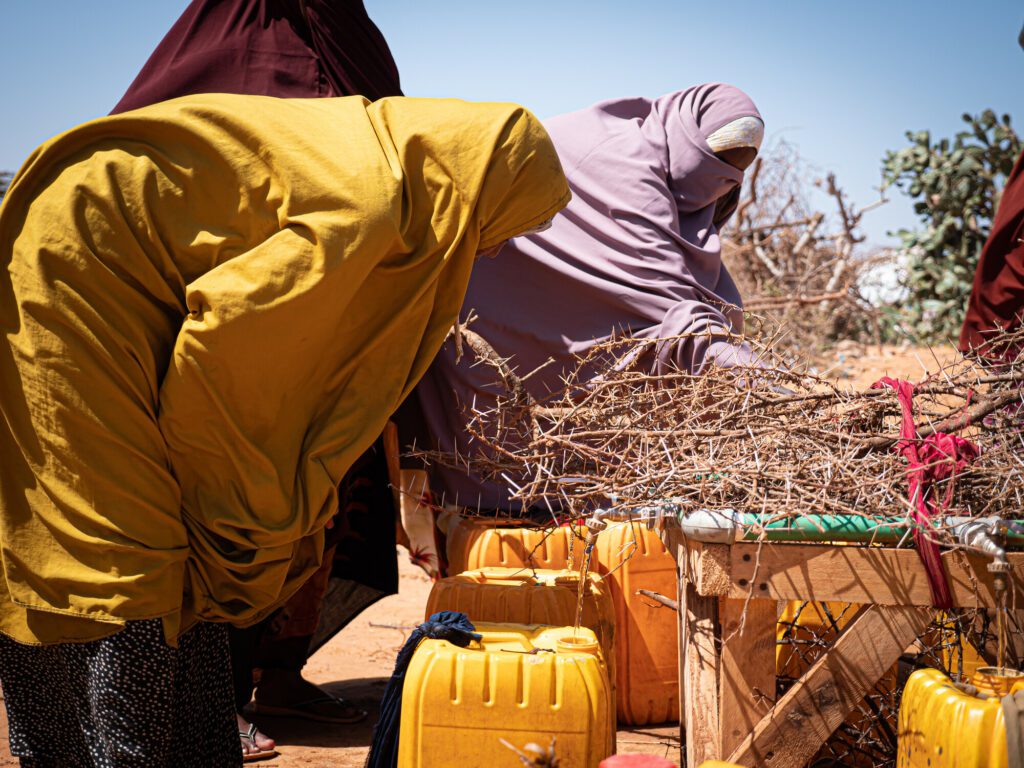
During the water distribution these women fetch water for their families after waiting patiently in line in the early morning. ©Medair
We stop talking because it is her turn to fill her water ration soon. Mothers walk past us with their children and full water jerricans, enough for one day to drink, cook and wash. Every day anew this picture repeats itself. A great logistical effort under difficult security conditions in a historic emergency situation, not only for the displaced in the settlements of Somalia, but bitter reality for countless people in East Africa.
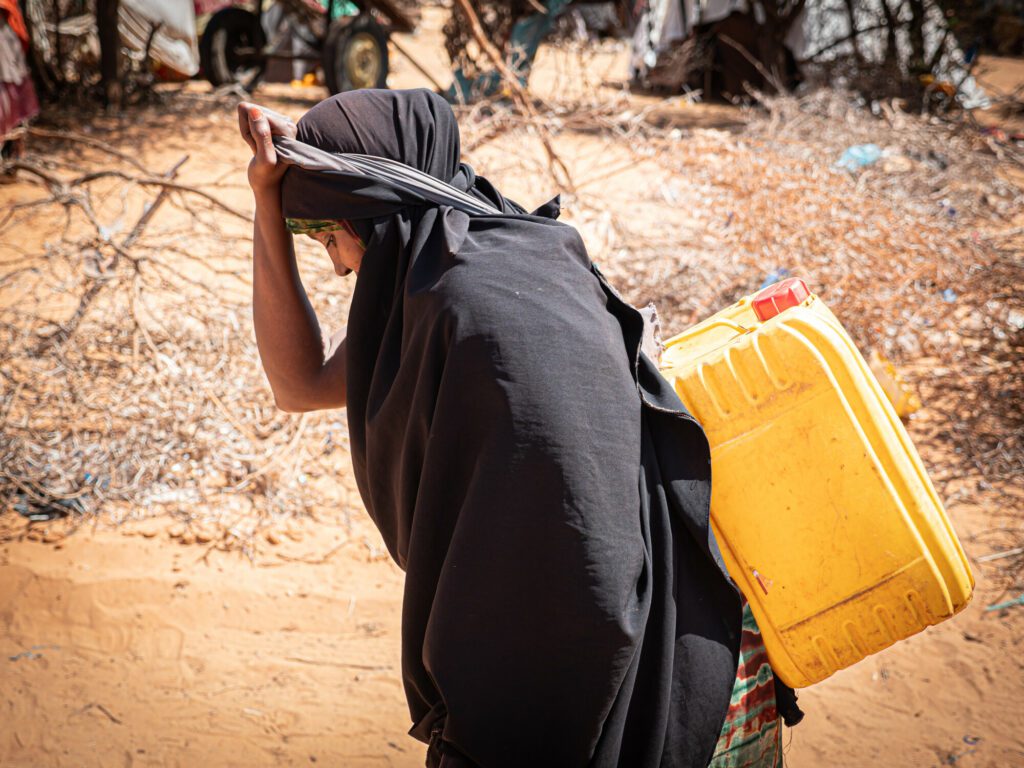
Heavy to carry but worth every effort: After fetching water this woman walks home with her supply of safe drinking water. ©Medair
The conflict in Ukraine is not only fuelling inflation and disrupting supply chains for food. It is pushing the hunger crisis in Somalia and East Africa into the background and making it difficult for NGOs to finance their aid work there. Serving the people in this settlement in Southern Somalia is only possible thanks to the many generous donors who courageously support our work in this difficult context. As I am still touched being back in the office by what I have seen in the settlement, I want to use this opportunity to say a huge thankyou to everyone who supported our work in this emergency while needs are on the rise all over the world. The people in Somalia are some of the most resilient I have ever seen. But in a crisis where drought, hunger, disease and violence merge to bring the country to the brink of famine, they remain dependent on our aid. As we wake up tomorrow morning, we can be sure that brave Medair relief workers will be taking huge risks again to serve this community I was privileged to visit. Together, they on the ground and we at home make a big difference and bring hope into an often hopeless-seeming situation. For mothers like Jasira, and for thousands more in this place in Southern Somalia that used to be flooded when it rained once upon a time.
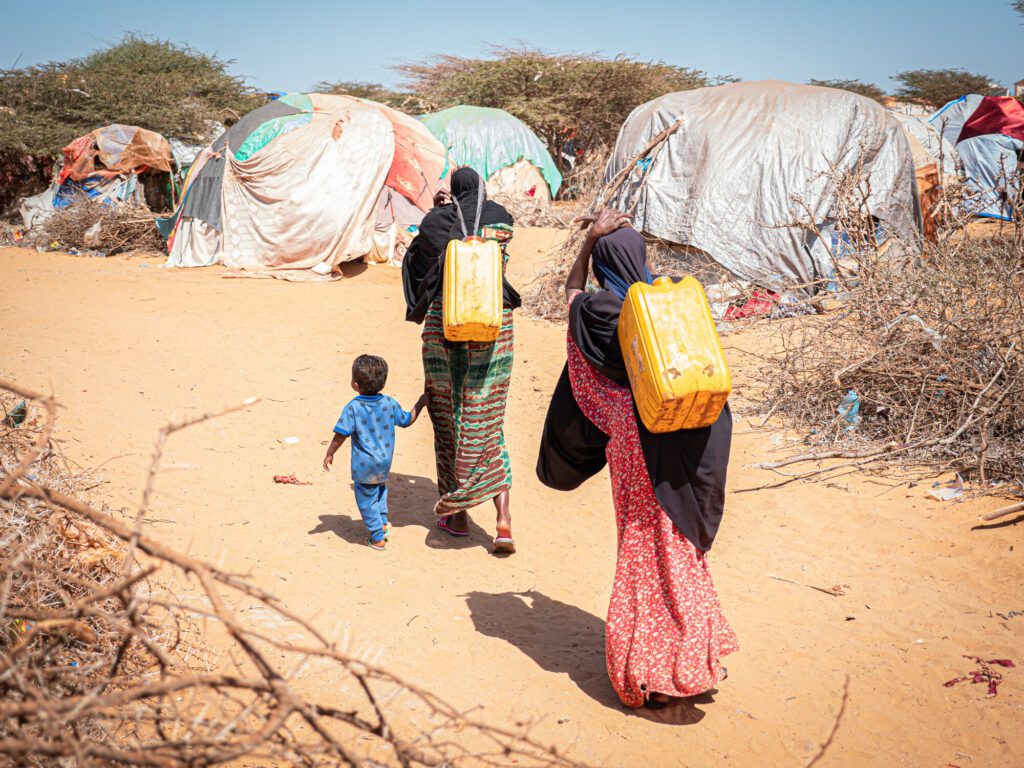
At home, the families can use the water provided by Medair for drinking and cooking. It is enough to survive in the severest drought Somalia has seen for forty years. ©Medair
This content was produced with resources gathered by Medair country and headquarters staff. The views expressed herein are those solely of Medair and should not be taken, in any way, to reflect the official opinion of any other organization.


